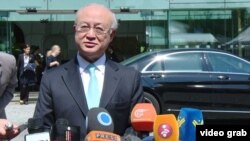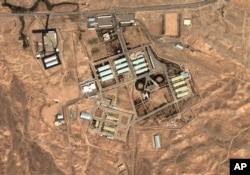The head of the IAEA on Thursday downplayed a media report that the U.N. nuclear oversight agency will allow Iran to carry out its own nuclear inspections as part of a multilateral accord reached last month in Vienna.
The statement follows claims by The Associated Press (AP) on Wednesday that the draft version of a side agreement indicates Iran could use its inspectors to investigate the Parchin military base south of Tehran.
"Such statements misrepresent the way in which we will undertake this important verification work," International Atomic Energy Agency Director General Yukiya Amano said.
While noting he is limited in what he can reveal about the confidential deal, Amano insisted the final version of the arrangement is "technically sound and consistent with our long-established practices."
"They do not compromise our safeguards standards in any way," he added.
The U.S. State Department says the IAEA has "in no way" given Iran responsibility for nuclear inspections.
The IAEA has sought access to Parchin to corroborate intelligence suggesting Tehran conducted tests on nuclear triggering devices.
The AP says the side agreement, known as "Separate Arrangement II,” diverges from normal procedures by allowing Iran to use its own experts and equipment in the search for evidence of activities it has consistently denied, trying to develop nuclear weapons, while under observation by IAEA staff.
The claim comes just weeks before the U.S. Congress votes on whether to reject a nuclear monitoring accord reached between Iran and the five permanent member-states of the U.N. Security Council plus Germany.














